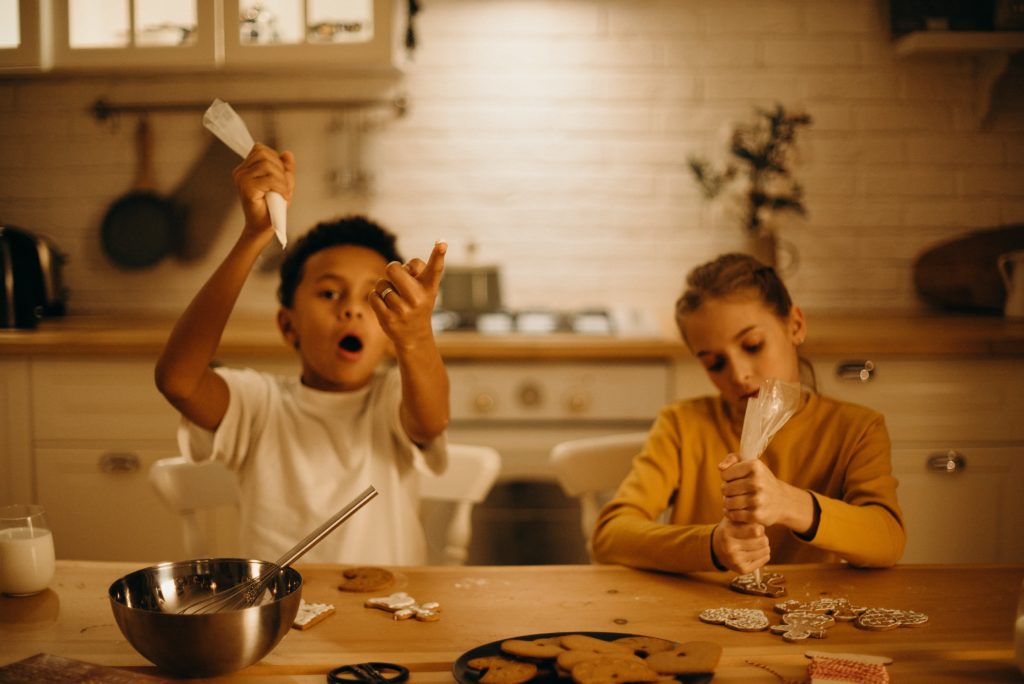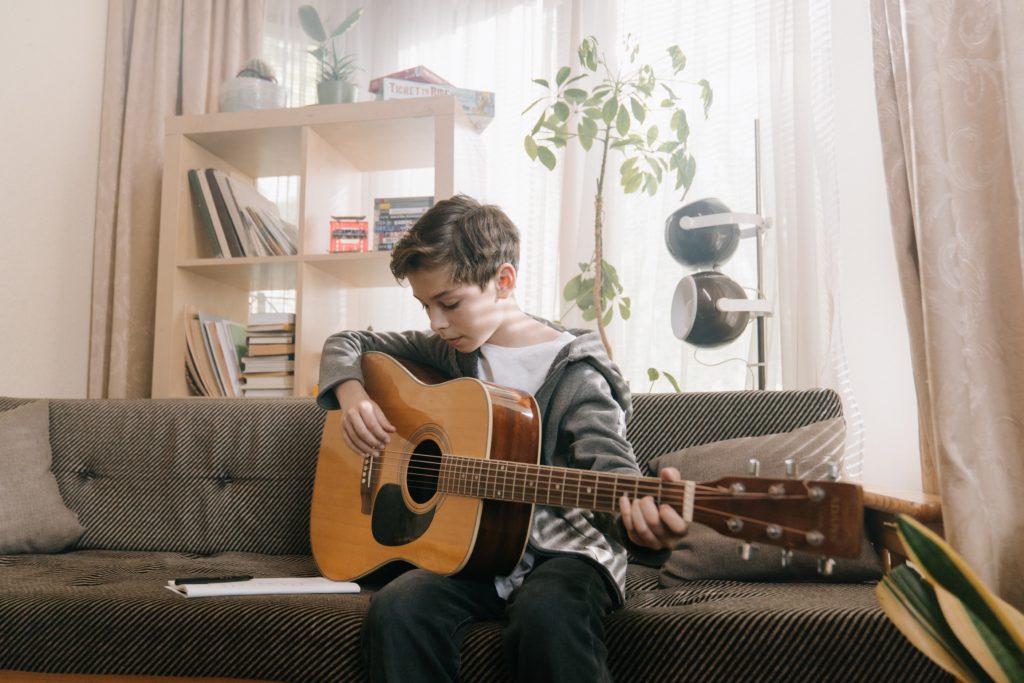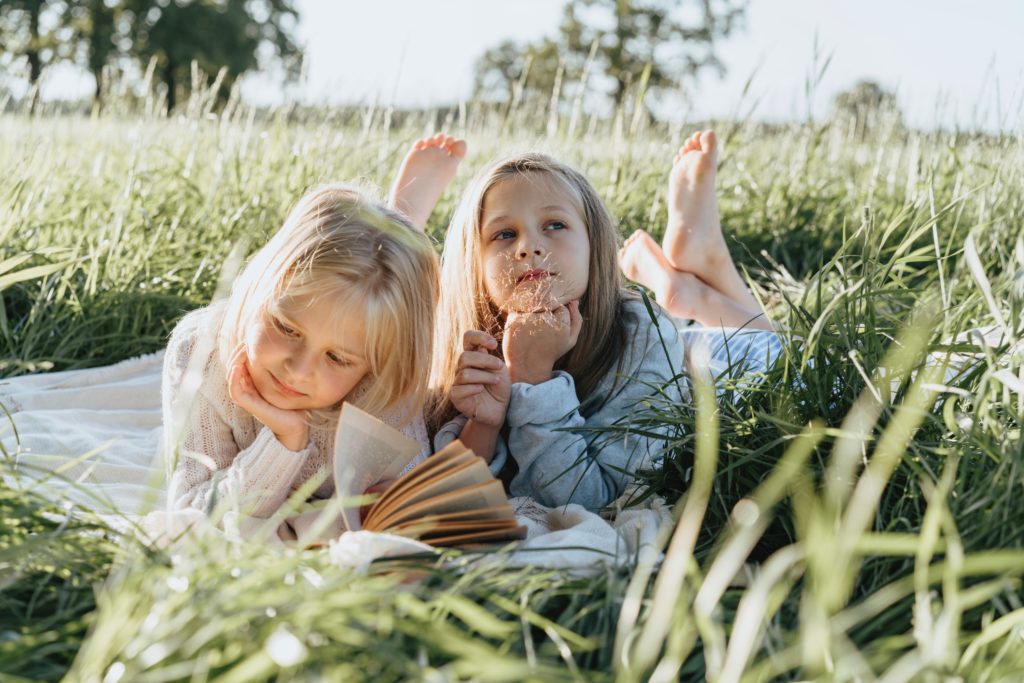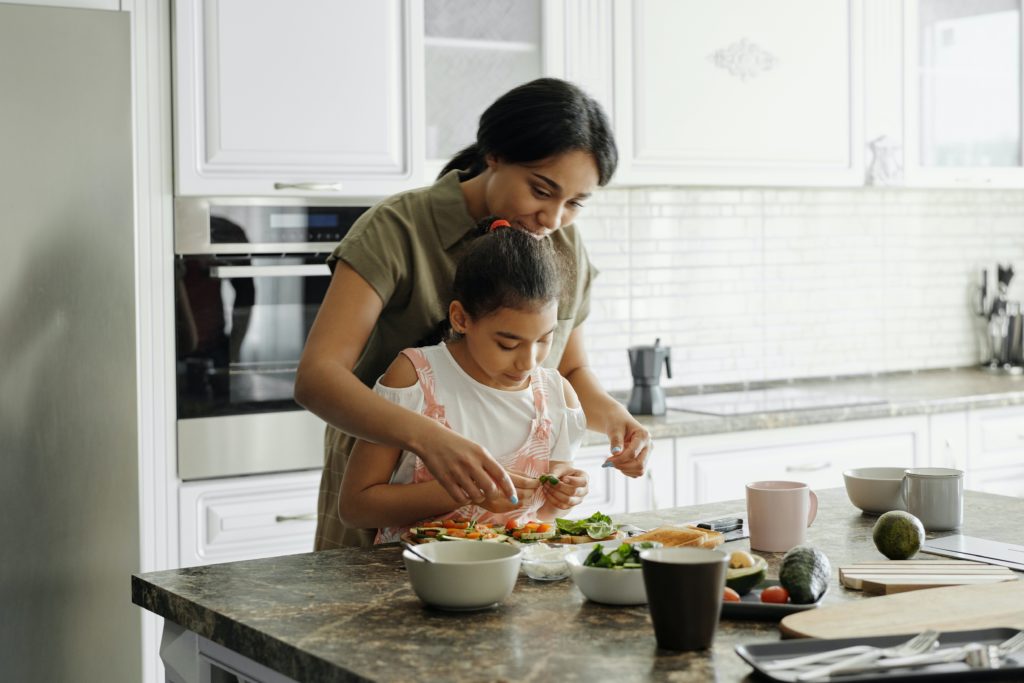20 Things I Learned About Homeschooling

Thinking about homeschooling your child? These 20 insights from Hand in Hand Parenting Instructor Lara Zane shed light on making the decision and what it takes to get a good start.
When my son was nearly six, we pulled him out of the small, friendly local school where he’d been for the past two years, to homeschool him. It was, and remains, one of the hardest decisions I’ve had to make in my decade of parenting so far.
And it was, and remains, one of the very best decisions I have made, both for him and for our family. This does NOT, however, mean that it has been an easy ride.
Taking that initial leap was pretty terrifying, triggered by a growing awareness that school was a poor fit for our son. But as I did my research, I became increasingly excited by the prospect that education could mean so much more than school. As my daughter approached school age a few years later we then felt that rather than a ‘last-ditch escape route’, home educating was now a proactive ‘best fit’ for our family, and we opted not to send her at all.
Four years into this journey we have all learnt a huge amount and the children are thriving. But it has gone nothing like I expected!
Here are some surprising things I’ve discovered on the way…
1. Homeschooling is all about relationship. If you have a good, deeply connected relationship with your child then you will be able to navigate the ups and downs of the journey together a LOT more easily. Investing time and effort in building that relationship will do more to improve your chances of a good homeschooling experience than anything else you can possibly do. For us, discovering Hand in Hand a year or so into our homeschool journey quite literally made it possible to survive and then thrive. There will be days where educating your children yourself will drive you insane and you’ll want to march them straight to the nearest school and pitch them over the wall, and other days when it will be utterly magical and you’ll be so so glad you chose this path. Putting relationship first leads to a lot more of the magic!

2. Support is critical. The more support you can build into your life, the easier things become. Getting out there and making friends with fellow homeschool parents who ‘get it’ is incredibly valuable – and if in-person is not possible right now then there are many super supportive groups online. Having people around you who can listen when things are hard makes a world of difference so if your existing friends and family welcome the idea then that is wonderful. Don’t despair if not – often people start out dubious and come round to it in time after seeing the children thrive. Some even become stalwart supporters of the whole idea and enjoy being able to spend time with the kids and share their own passions with eager learners. And don’t forget Listening Partnerships. They are a vital part of my support network – being able to offload it all to someone who will just listen, and remember that I am still a good parent, and my kid is still a good kid is like gold dust. If you don’t have one already, then set this up – you’ll be so glad you did.
3. You matter too! This point underscores everything else – it’s very easy, and very common at times as a homeschooling parent, to become overwhelmed by trying to be all things to your children and losing your sense of self in the process but it doesn’t have to be like this. In fact, hard as it is sometimes, it’s really important to look out for yourself too, the same way you do for them. You are modelling to your children how to ‘live life’ so building in support to keep you going and projects that light you up shows your kids that adults can enjoy living and learning too. Who knows where absorbing that idea might take them?
4. Deschooling really matters. Taking some time to step back from formal learning and focus on connection allows you all the opportunity to learn to trust yourselves and live together as a family in a way that you might never have done before. It really is different to experiences over brief holiday periods and takes time to adjust. Focus on building in regular predictable Special Time to deepen the connection with your child – it’s the foundation for everything. Big feelings may well bubble up to be heard as children realise that they are not returning to school, whether their experience there was positive or negative. By Staylistening through these feelings, and building in opportunities to Playlisten around them you help clear the way for more relaxed flexible learning later.
Get a free guide to Hand in Hand Special Time here
5. Learning comes in many shapes and sizes. One of the many wonderful things about stepping out of the classroom is that you can truly personalise learning to your child. Want to take a deep dive into ancient history, outer space, or creating art or music? Whatever your child’s age or stage you can use their interests to cover all the key basics and so much more. Being flexible about what and how your children learn means that it’s possible to accommodate different aged siblings without having to work entirely separately with each though of course, they will all need individual attention that is relevant to their needs.

6. However your child learns, whatever their challenges, home education can be awesome. Got a kid who needs to move constantly? One who excels in one area and/or struggles in another? Working with additional educational or sensory needs? These can all be accommodated at home in a way that is challenging for a single teacher in a full classroom to manage. Once you start observing how your children learn best you may be surprised by what you discover, not least that every child really is unique – even within a family, every child will probably have different preferred ways of learning. Being able to recognise and allow for that is such a gift to our kids.
7. Learning can be chaotic. School learning generally involves building small bits of knowledge into a cohesive whole. Real-life learning can be very different and might look utterly random and riddled with holes. And yet, children can learn really well that way, as anyone with a toddler who can name a dozen dinosaurs accurately but can’t yet talk in full sentences will know!
8. You do not need to ‘teach’ your child. Facilitating their learning is enough. Being there, delighting in them as much as you can and Staylistening to their struggles is a powerful part of their learning journey. And sometimes getting out of their way and letting them explore their interests is the most valuable thing you can do. Every home educator I know has at least one story that goes ‘I have no idea how they know so much about the Russian Revolution/Coding/classifying insects – they just seemed to pick it up’. You also don’t need to be the only person your children look to for support – other adults and children (and Google) will help them along, either formally if you set this up or informally in ways you never predicted. Remember, you helped them learn to walk and talk. You can help them learn algebra and grammar when the need arises.
9. You will panic! Many times over! And then along will come a magical moment that makes it all worthwhile. Take that panic to your Listening Partner and offload your own fears. You’ll then be able to decide how to move forward with more clarity and be more able to notice the learning that IS happening every day. Often you’ll despair that your children will ever learn something and then, when they are ready, they will learn faster and better than you thought possible – even the tricky stuff like reading or long division.
In a spin about your child’s learning and education? When you donate to Hand in Hand Parenting now, you’ll receive Raising Kids Who Love to Learn. The series is full of ideas about how to solve struggles around learning – no matter where that takes place for your child this year. Click here to learn more.
10. You can’t always predict what will grab them. You’ll come up with the best possible idea ever and your children will be utterly uninterested. And then the next day you’ll leave something random lying around and it will become a focus for some amazing unexpected learning. Giving your kids time and space to discover their own interests, and HOW to learn is a great way to set them up for lifelong learning.
11. You will try, try and try again. Most home educators try out multiple curricula/styles of learning/groups and activities etc before they find what works for them. You’ll overschedule and then under schedule as you find your feet. While it can be frustrating, this is an important part of figuring out this lifestyle and what works for your unique family and it takes time. And just when you find what does work for you, your kids will grow and it’ll all change again. I love the concept of tidal or seasonal learning – that it’s ok for different ‘seasons’ to look very different. Maybe a few weeks or months are filled with obviously academic learning followed by a period of lots of time in nature and sports activities and then another where it seems like ‘nothing is happening’. You can be sure that every season contains valuable learning and allows you to feel refreshed and renewed, ready for the next shift when it comes. Consistency is less important than we’re led to believe!
12. Not all knowledge on the curriculum actually matters. Maybe your child becomes an expert on the Azteks but doesn’t know much about Ancient Rome. That’s just fine – there is more to life than can be found in a curriculum, and much in the curriculum that is not actually essential to successful adult life. It’s good to be flexible about what ‘counts’.
13. You do not need to keep ‘school hours’. Outside the constraints of the classroom, academic learning can happen much more quickly than in school – there’s no need to wait for 30 kids to sit down, line up, be quiet, etc. This means that even if you choose (or are required by your country or state) to do a certain amount of ‘desk work’ each day it won’t take a whole day to accomplish. This allows so much more free time for free play, being creative and even getting bored – all incredibly important and often squeezed out of busy schedules when so much of the day is taken up by school.
14. Learning happens everywhere and ‘everywhen’. From discussions in the supermarket about the nutritional breakdowns of different cereal brands (and from there to how the digestive system works and how to eat healthily), to the just-before-bedtime plea to do some maths questions it’s hard to stop children learning if they are allowed to discover their own interests. It’s hard to imagine if you have children who have been put off learning but kids really can love it if they are allowed space and time to re-engage their innate curiosity.
15. If in doubt, curl up and read a book together. Or let them draw, or play lego or do handstands while you read (or stick an audiobook or podcast on – it counts too and might just give you 10 mins to pee in peace!). SO much learning can happen this way, even on a duvet day when no-one changes out of pyjamas!

16. Home education does not happen just in a perfect ‘homeschool room’ or even at a messy kitchen table. The world is your classroom and free or low cost resources are so plentiful from the internet and libraries to museums and natural spaces that it can be hard to choose which to use.
17. Rhythm helps. Having at least a basic idea of when you build in key activities during your day and week is really useful, and you get to choose what that means. For us, Special Time, reading together and opportunities to play and do activities with other children form a structure for our days and weeks on which to hang everything else. Being willing to mix it up and change that rhythm for a spontaneous outing / learning opportunity / snow day is important too.
18. You will be endlessly interrupted and have to adapt to living all of life with small people in tow. And you will realise that accompanying you through all of life, is actually a great way for your children to learn ‘how to do life’. From cooking and cleaning to filling the water tank in the car, fixing things or choosing insurance, having kids in tow will both slow you down, and speed up their ‘life learning’. Embracing the inconvenience as an opportunity can help you stay sane!
19. Kids seem to need endless meals and snacks!!! This shouldn’t be a surprise but whenever I ask other veteran homeschoolers what their experience is like it always comes up! And of course, if you want to use it, this gives great opportunities for learning about cooking, budgeting, planning, research, reading (recipes), maths (cooking together and shopping), healthy eating and so much more. You could even research food from different countries and cultures, or historical periods to make the constant food requests into a whole learning project. Or… you know… just point them at the apples or crackers! That’s ok too.

20. Socialisation (in a non-pandemic world) is not an issue. In normal times there are so many opportunities to socialise with people of all ages, and while that’s trickier with Covid restrictions there are still ways to keep up the social contact. We often think of schools as great places to socialise because children are surrounded by others of the same age but it’s helpful to consider that the eventual aim is to be able to relate well to others in adulthood. Being supported to build relationships with other children AND adults is a great way to manage that, while also providing the ‘common interest’ friendships that enhance our lives at every age. And if you have more than one child, the extra time spent together often results in siblings who are really close. All the homeschooled kids I know are comfortable holding conversations with kids and adults alike and adapt well to different situations. Particularly as they hit their tweens and teens homeschooled children often seem to have a robust sense of self that allows them to hold their own and be confident about making the decisions that are right for them rather than always bowing to peer pressure. Whatever the educational setting, your listening to them as they figure out who they really matters.
It’s good to remember that homeschooling is, essentially, just an extension of parenting. The same principles apply. Love your kids, delight in them, give them clear warm limits and plenty of opportunities to play and be listened to and you’ll find your way. Remember that no choice is final – you get to think consciously about what you want for your family and choose the path that works for you right now. Only you can make that decision and it does not have to be final. There are many ways to raise and educate kids well, the key, as always is your relationship and connectedness with them. All else flows from that.
Lara Zane is a London-based, Certified Hand in Hand Parenting Instructor, mum to two children and a former teacher with a love of neuroscience. Lara’s areas of special interest and experience include working with children who are highly sensitive, spirited, intense, anxious or aggressive and those who show signs of giftedness/HLP, learning or sensory differences.
You can contact Lara to find out more about her parenting classes at laraz@handinhandparenting.org
This article was first published by Hand in Hand, August 2020.

